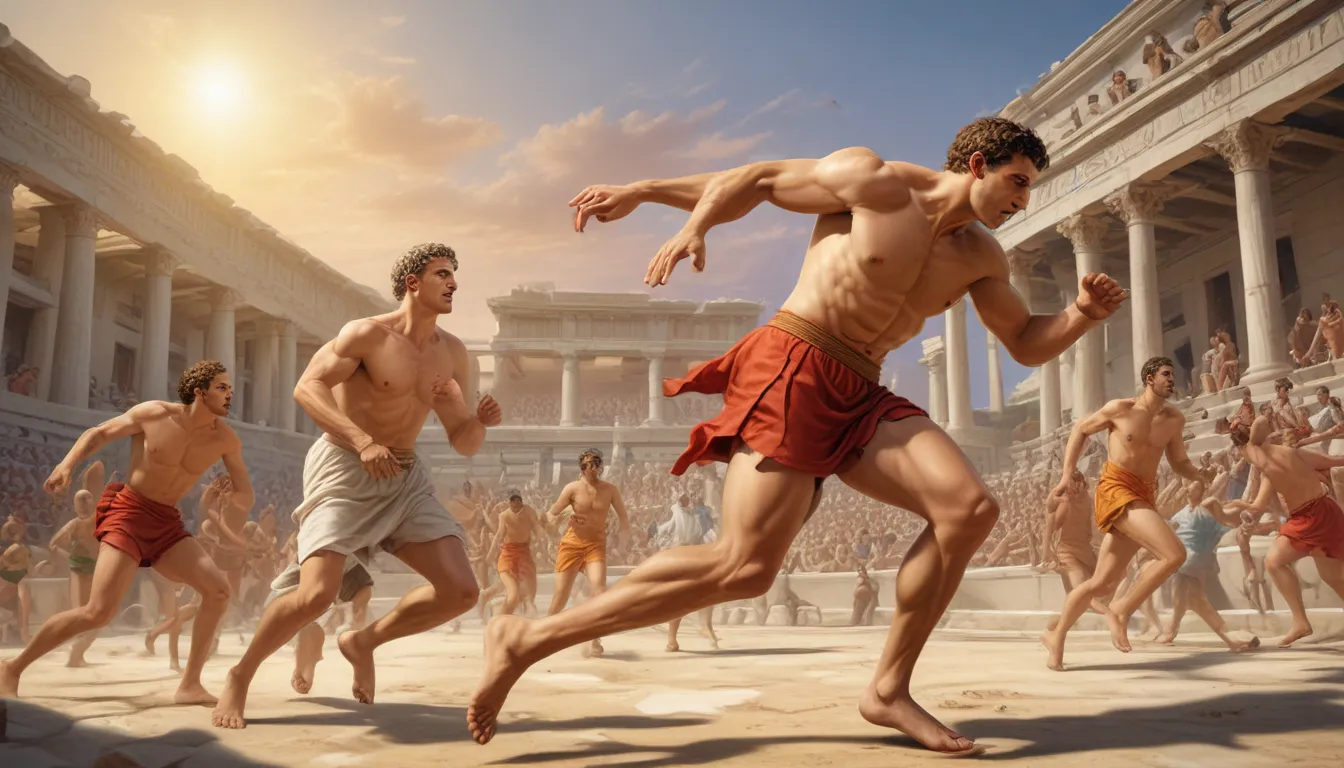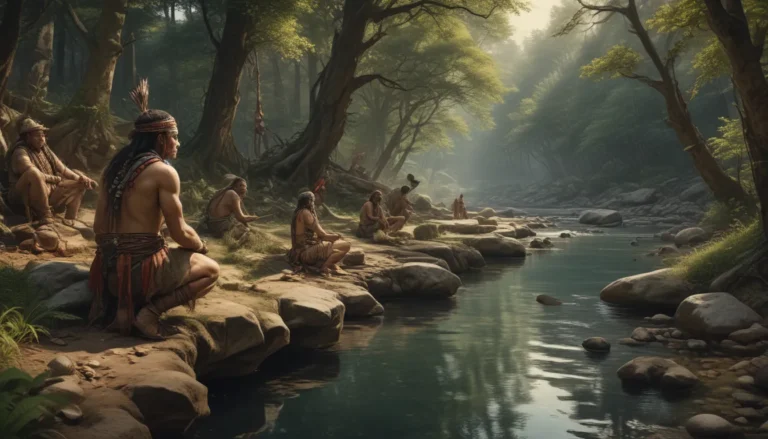The images in our articles may not match the content exactly. They are used to grab your attention, not to show the exact details in the text. The images complement the text but do not replace it.
Welcome to a journey back in time to ancient Greece, where the roots of the Olympic Games lie. Imagine a world where athletes competed in the buff for olive wreaths and eternal glory. These games were more than just physical trials; they symbolized unity, skill, and the human spirit. Let’s unravel 27 intriguing facts about the ancient Greek Olympics that laid the foundation for the modern games.
Unveiling the Origins
The Ancient Greek Olympics, dating back to 776 BC, were not merely sporting events but cultural and religious festivals. They held such importance that they were used to mark time, with an interval known as the Olympiad between celebrations.
Did you know:
– The Ancient Greek Olympics started as a one-day event in 776 BC, later extending to several days by the 5th century BC.
– Olympia was the sacred ground where athletes sought glory and the favor of Zeus, the king of the Greek gods.
Dive into Events and Competitions
Athletes from different city-states across Greece showcased their prowess in various events, displaying physical strength and bringing honor to their homes.
Explore:
– A wide range of events, including running, long jump, shot put, javelin, boxing, and equestrian competitions, tested athletes’ skills.
– The pentathlon, combining sprinting, long jump, discus throw, javelin throw, and wrestling, was a highlight of the games, demanding both physical and mental endurance.
– Oftentimes, chariot racing was considered prestigious, with wealthy owners entering their chariots and horses into the competition.
Embracing the Sacred Truce
One remarkable aspect of the Ancient Greek Olympics was the sacred truce, known as ekecheiria, promoting peace and unity among the sometimes-warring city-states.
Discover:
– Ekecheiria was a period of suspended warfare to ensure safe travel for athletes and spectators to Olympia, emphasizing the games’ role in fostering peace.
Celebrating Victors and Rewards
Victory in the Olympics was an esteemed achievement, celebrated by many but attained by few.
Insightful facts:
– Winners were hailed as heroes and often received rewards from their city-states, in addition to the prestige of their triumph.
– Olive wreaths, symbolizing honor and glory, were cut from the sacred tree of Zeus and presented to the victors, solidifying their place in history.
Women’s Role in the Olympics
While male athletes dominated the main Olympic events, women had their own space for competition.
Details to explore:
– The Heraean Games, dedicated to Hera, the queen of the Greek gods, were the female equivalent of the Olympics.
– These games featured running events and were open to young unmarried women, showcasing the diversity of athletic competitions in ancient Greece.
The End of an Era
The Ancient Greek Olympics flourished for nearly 12 centuries before meeting a gradual decline and eventual discontinuation.
Notable points:
– In AD 393, Emperor Theodosius I of Rome banned all pagan festivals, including the Olympic Games, signaling the end of this celebrated tradition.
– Despite the games coming to a close, their legacy continues to influence modern Olympic ideals, uniting people worldwide in the spirit of competition and camaraderie.
Legacy and Enduring Influence
The legacy of the Ancient Greek Olympics transcends time, shaping the modern Olympic movement and cultural values.
Reflect on:
– The revival of the modern Olympic Games in 1896, inspired by the ancient traditions and values of the Greek games.
– The cultural impact of the ancient Olympics on art, literature, and education, highlighting the enduring fascination with Greek achievements and values.
– The Olympic spirit of excellence, respect, and friendship, resonating with the principles celebrated in the ancient games, fostering global unity through peaceful competition.
Connecting with The Past
As we delve into the realm of Ancient Greek athletic glory, we witness the birth of a rich tradition that continues to inspire generations. The spirit of excellence and unity that defined these historic games lives on in the modern Olympic Games, serving as a testament to the power of sports to unite people across boundaries.
FAQ Section:
- What were the Ancient Greek Olympics?
The Ancient Greek Olympics began as a festival to honor Zeus, the king of the gods, featuring a blend of sports, culture, and religion. - Who could compete in these games?
Only free-born Greek men participated in the Olympics, while women had their own festival, the Heraea, dedicated to Hera, Zeus’s wife. - What kinds of sports were included?
Events ranged from foot races to wrestling, boxing, pentathlon, and chariot racing, showcasing a diverse array of athletic competitions. - Did winners receive medals?
Victors were crowned with olive wreaths from the sacred tree of Olympia, a symbol of honor and fame. - How often were the Ancient Greek Olympics held?
These games took place every four years, with an Olympiad serving as a unit of time measurement. - Why did the Ancient Greek Olympics end?
Emperor Theodosius I banned pagan festivals in AD 393, leading to the cessation of the ancient games. - Have the Ancient Greek Olympics influenced today’s games?
The modern Olympics draw inspiration from their ancient predecessors, promoting peace, unity, and athletic excellence.
Conclusion:
The ancient Greek Olympics set the stage for the global phenomenon we know today, intertwining athleticism, culture, and unity. As we navigate the legacy of these historic games, we uncover a tapestry of tradition and values that continue to shape the modern world of sports. Let us carry forward the spirit of the ancient games—of excellence, respect, and friendship—as we celebrate the enduring impact of the Ancient Greek Olympics on our contemporary athletic landscape.






